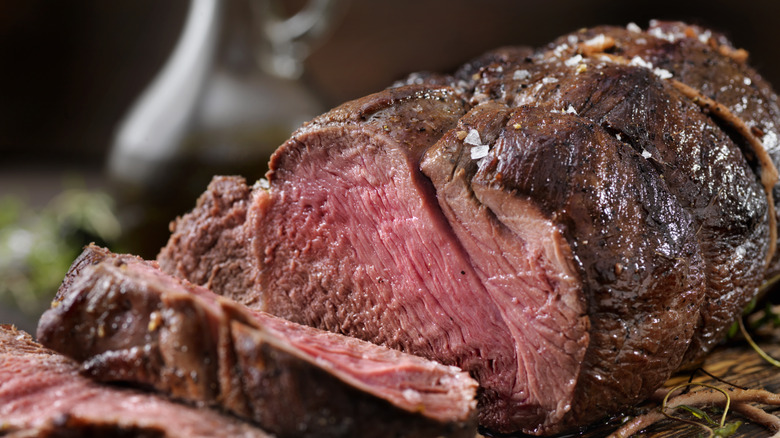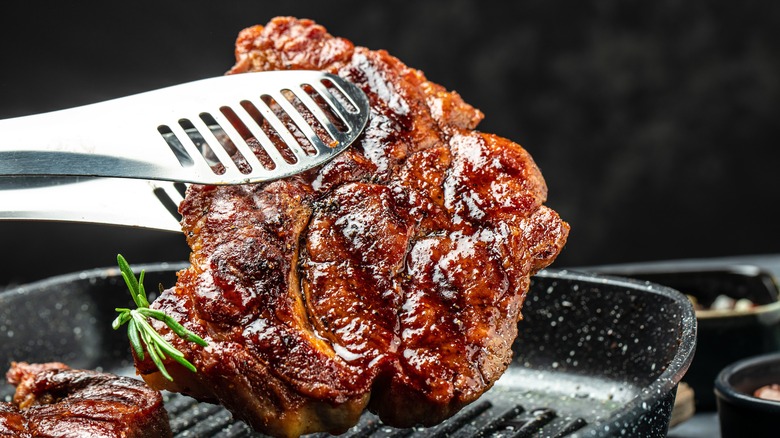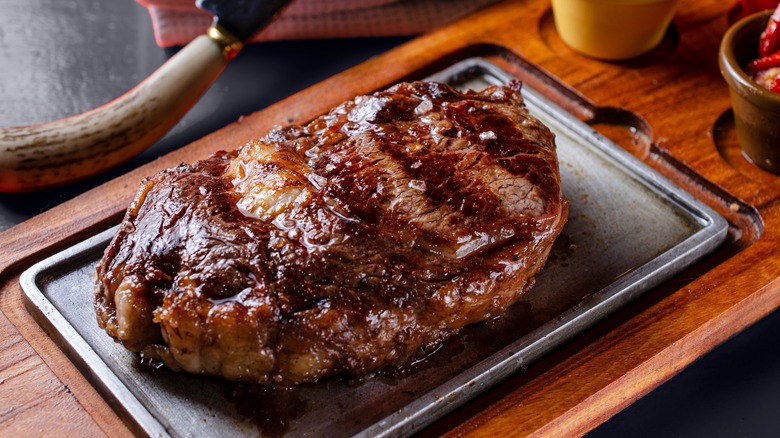Should You Still Pat Your Meat Dry Before Cooking If You Used A Marinade?
Marinating can be a great way to impart flavor to your dinner, particularly when it comes to meat. And while there are a lot of different marinating mistakes people might make — using too many ingredients, adding too much salt or acid, not marinating for long enough — one of the most unexpected issues you can run into is not patting your meat dry after it's marinated but before it's cooked.
This may seem counterintuitive; after all, the whole point of a marinade is to impart flavor to the meat using liquid, so why would you want to remove any of that liquid? Wouldn't that mean you're just eliminating flavor from your dinner? Not really. First of all, if the marinade hasn't been absorbed into the meat but is instead just sitting on the outside, it won't be doing much for its flavor — and it could very well prevent you from getting the cook you want.
Gently patting marinated meat dry helps you get a good sear
More importantly, moisture is often the enemy of a good cook when it comes to meat. When grilling or pan-searing, your goal is to get a nice solid crust on your protein when exposed to high heat. The problem with excess moisture is that it tends to steam the meat's outer edge, turning it gray but not creating that Maillard browning that leads to a good sear.
Patting it dry thus gets around this issue because you're wicking away the excess moisture. It's important to be gentle here — you don't want to wring all the marinade out — but dabbing at any large wet spots can really help get the outer part of your meat cooked the way you want it to. In general, a marinade isn't going to penetrate past 1/8 of an inch into the meat, so it's best to do this whole process on thinner cuts.
You can dodge this entire issue by reverse-marinating
There is, however, a method for marinating meat that gets around this problem entirely, although it might sound counterintuitive at first: Marinate the meat after you cook it. When meat is exposed to heat, its muscle fibers tighten and expel water to the edges; when it starts to cool, those fibers loosen and suck the liquid back up. If you marinate the meat immediately after you cook it while it's still resting, not only do you avoid the issue of excess moisture causing problems with searing, but you're using the meat's natural vacuum-like processes to get the marinade all up in there.
Whether you're reverse-marinating the meat or patting it dry before you cook it, you want to get as much flavor as possible without compromising the quality of the cook. Either is a good option — just don't toss a sopping wet steak on the grill.


